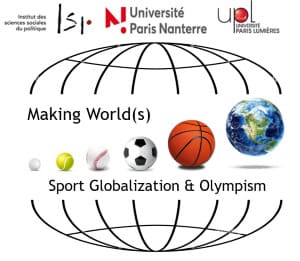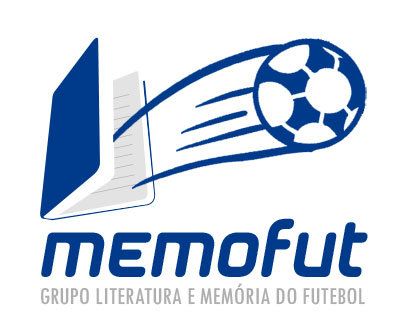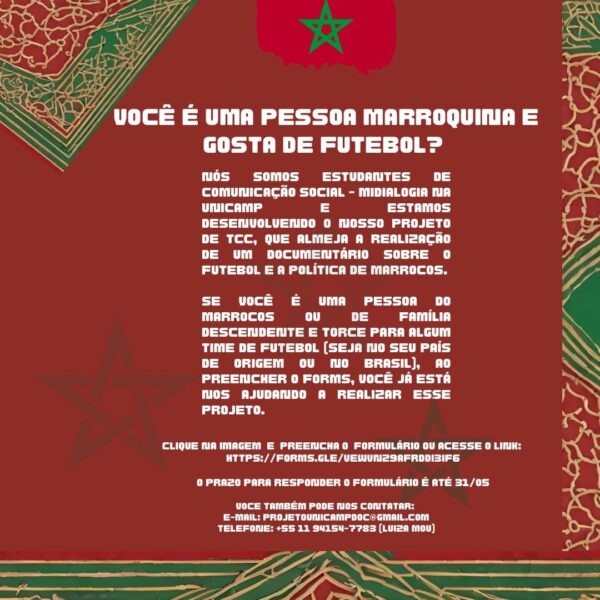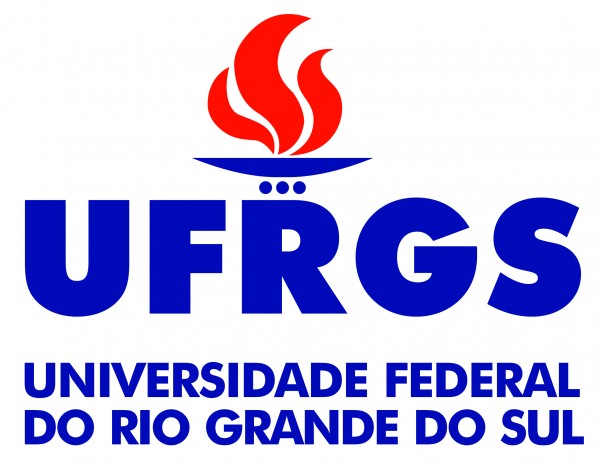27th International Congress of the European Committee for Sports History (CESH)
Making World(s). Sport Globalization & Olympism
Call for Papers
“The most important thing is for national propaganda to keep pace with the new conditions created, if such language can be used, by the “globalization” of all things. What’s essential is that, without delay, in the right places, a living flame replaces the dying reflection“.
(P. de Coubertin, Le Figaro, December 13, 1904)
While the word “mondialisation” entered the French language in the early 1980s, it was first used by Pierre de Coubertin, in an article in Le Figaro, entitled “Le flambeau à sept branches”, dated December 13, 1904 (Capdepuy, 2014; Markovits, Singaravélou, Todd, 2021). In this respect, sport appears to be an early player in the cultural dimension of globalization, long before it became part of the economic logic of the phenomenon.
Scientific Project
Following the discovery of America and the rise of transatlantic trade, globalization accelerated in the 19th century, from its anchor in Victorian England, the leading imperial and commercial power. It was relayed by the planetary influence of the Western powers, and manifested in the intensification of cultural, social, political and economic exchanges.
The globalization of sport was first studied by geographers (Bale, 2003; Augustin, 2007; Holz, 2011) and economists (Bourg, 2010; Andreff, 2021), then by sociologists and anthropologists (Harvey & Saint-Germain, 1995; Appadurai, 1996), and finally by historians who initially focused on political, diplomatic (Gygax, 2013; Dichter & Jones, 2014; Murray, 2018; Rofe, 2018; Postlethwaite & al., 2023) and international relations (Houlihan, 1994; Arnaud & Riordan, 1997; Allison, 2005; Keys, 2009; Giulianotti & Armstrong, 2011).
Then, historical works dedicated to sport and Olympism (Guttmann, 1978, 1992; Milza, 2002; Arnaud, 2002; Milza, Jéquier, Tétart, 2004), first studied the development and spread of modern sports (Maguire, 1999; Darbon, 1995) under the effects of colonization (Baker & Mangan, 1987; Mangan, 1998), imperialism (Stoddart, 1988; Guttmann, 1994; Gems, 2006; Singaravélou & Sorez, 2010), nationalism (Bairner, 2001; Grainger & Andrews, 2005; Stoddart, 2009; Archambault, Beaud, & Gasparini, 2016), geopolitics (Augustin & Gillon, 2004) and developments in transport that intensified global exchanges (Galtung, 1991).
However, all did not always agree on the existence of globalization, or on a distinct historical phase (Lanfranchi, Taylor, 2001), or even on the fact that this phenomenon can influence sport (Rowe, 2003; Giulianotti & Robertson, 2007). The congress can provide an opportunity to discuss scientific debates on the periodization of sport globalization, as proposed by the sociologies of dependence and configurations, taking a long-term view (Maguire, 2006). This scientific moment also offers an opportunity to highlight the crystallization of positions between defenders, skeptics and reformists (Held & al., 1999) of the globalization of sport through studies conducted by, on the one hand, “experts” (in geopolitics, sport management, journalism, finance, etc.) and, on the other hand, researchers specializing in the social sciences of sport (historians, sociologists, political scientists, economists, etc.).
While some researchers believe that the phenomenon began at the dawn of the twentieth century, between 1870 and 1920 (Maguire & al., 2002), others, inspired by the new political economy (Harvey, Houle, 1994) and Cultural studies (Miller & al., 2001), consider the globalization of sport to be more recent. The latter situate its onset after the Second World War, distinguishing its advent from economic and cultural imperialism.
Be that as it may, the globalization of sport has been the subject of numerous studies – some authors even list them (Gems & Pfister, 2013 ; Rahal, Campillo, Richard, 2021) – which analyze this complex phenomenon, with its many issues and ramifications, as it is traversed by long-term processes (Bairner, 2001) such as the progress of the democratic ideal, the development of mass culture (Arbena, 1988; Holt, 1990), the affirmation of feminist demands (Hargreaves, 2015) or the expression of male domination (McDevitt, 2008). Lastly, globalization is criss-crossed by such landmark historical events as the Cold War (Edelman & Young, 2020; Dufraisse, 2023), post-colonization (Bale & Cronin, 2003; Bancel & al., 2018), doping (Houlihan, 2003), the development of sporting cultures (Fuhua, 2013), ecology and Olympism (Cantelon & Letters, 2000) or the development of sport for peace (Hoberman, 2011), etc.
Although based on the increasingly numerous and rapid interactions between individuals, human societies, companies, states and NGOs, the globalization of sport does not only result in the standardization of cultural practices, techniques and the values associated with them (Sudre & Genty, 2014). It also opens up to relations of interdependence, adaptation of global characteristics to local requirements (glocalization) (Harvey, 2013; Falcous & Maguire, 2006), reconfiguration, resistance, and differentiated appropriations by actors with varied ambitions and resources (Heinmann, 2010).
They raise questions by highlighting the tensions between local realities and global trends: what are the effects of Americanization and/or Westernization on sporting practices? What issues are driving nations and states to make sport a global phenomenon? How do multinational firms link up with the sporting world to develop their brands? Do the military and religion see sport as a medium for disseminating their actions and values? How do media discourses contribute to the global dissemination of sport? To what extent do NGOs have an interest in development through sport? Finally, can the Olympic movement constitute a world, or is it the creation of interacting sporting worlds (International Olympic Committee, International Sports Federations, National Olympic Committees, etc.)?
These are only some of the questions that the congress will address, with the aim of improving our understanding of the interactions between individuals and groups that shape more or less interdependent worlds, the dynamics of which set the pace for the globalization of sport and Olympism (Young, Wamsley, 2005). Thus, the analytical approach favoured by this congress will pay particular attention to the multiple ways, situations and (re)configurations of making (worlds) (Becker, 1982, 1986) of sport and Olympism – be they cultural, political, social or geographical; in relationships of complementarity or conflict (Harvey, Rail and Thibault, 1996) – which enable us to apprehend the historical process of globalization and its variations in space, societies or in terms of scales of analysis.
Congress themes
1- Diffusion, circulation & mediatization of sport
The aim is to examine the worldwide diffusion of sport, its conditions of reception and circulation (bodies, values, knowledge, techniques) and its mediatization, in order to understand the forms of homogenization and/or resistance induced by colonization and imperialism, the construction of normative discourses and discrimination (gender, disability, etc.).
2- Individuals, communities & sporting identities
The globalization of sport contributes to the creation of sporting worlds by individuals and/or communities – sometimes imagined – with plural identities and diverse representations, in situations of cooperation and/or conflict, such as long-distance supporterism or sport as an instrument of community identity claims and nationalism.
3- Institutions, internationalization & transnationalization of sport
Globalized sport is also shaped by sporting (and non-sporting) institutions that produce a world of sport through the national, via politics, diplomacy, international relations and economics; whether to develop a brand associated with the image of a sportsman/sportswoman, impose its hegemony in the Cold War or develop peace through sport.
4- Sporting interdependencies between the local and the global: homogenization/resistance
The universality of sport also calls into question the confrontation between the worlds that make it up, through the interpenetration of the local and the global, prompting us to analyze these multiple adaptations as part of the process of acculturation, mimicry, reappropriation and sportivization of sporting practices, or when a locality hosts a world sporting event.
5- Making the worlds of sport and the Olympics
Finally, we’ll be looking at the nature and coherence of relations between (sporting and non-sporting) institutions in the creation of sporting and Olympic worlds, such as those between amateur and professional sport, and between the International Olympic Committee and its component parts, the International Sports Federations and the National Olympic Committees.
6- Other themes
Guidelines for paper proposals (abstracts)
Paper proposals can be submitted solely on the congress website in the “Abstract submission” tab:
https://cesh2024upn.sciencescall.org/submission/submit
If you encounter a problem, please contact:
Researchers are encouraged to submit a panel proposal of three or four papers. To do so, the panel’s communicators must submit each paper proposal via the congress website. A panel coordinator must send an e-mail to the organizer specifying the content of the panel as well as a short presentation of the panel and the communicators. The deadline for submissions is also January 31, 2024.
Key dates
- January 31, 2024: deadline for submission of paper proposals
- February, 29, 2024: extension of the deadline for submission of proposals
- February-early March, 2024: notification of acceptance after review of abstract proposals
- March 1, 2024: opening of registration (payment)
- June 04, 05 and 06, 2024: congress
Information and contacts
All communicators must be CESH members for the year 2024. Payment of annual fees for CESH members can be made via the CESH website: www.cesh-site.eu
Congress registration fees can be paid via the congress website: https://cesh2024upn.sciencescall.org/
For all information and questions relating to the organization of the 27th International CESH Congress at Paris Nanterre University, please contact: [email protected] or/and [email protected]
Allison, L. (2005). The Global Politics of Sport: The Role of Global Institutions in Sport. London: Routledge.
Andreff, W. (2021). La face cachée du sport. Dérives économiques et scandales financiers. De Boeck Supérieur.
Appadurai, A. (1996). Modernity At Large: Cultural Dimensions of Globalization. Minneapolis: University of Minnesota Press.
Arbena, J. L. (1988). Sport and Society in Latin America. Diffusion, Dependency and the Rise of Mass Culture, New York: Greenwood Press.
Archambault, F., Beaud, S. et Gasparini, W. (2016). Le football des nations. Des terrains de jeu aux communautés imaginées. Paris : Publications de la Sorbonne.
Arnaud, P. (2002). « Sports et olympisme après la Première Guerre mondiale. Nouvelle donne géopolitique et enjeux de prestige », Relations internationales, no 111, dossier : « Olympisme et relations internationales 1 », automne, 347-363.
Arnaud, P., et Riordan, J. (1997). Sport et relations internationales (1900-1941). Paris : L’Harmattan.
Augustin, J.-P. (2007). Géographie du sport. Spatialités contemporaines et mondialisation. Paris : Armand Colin.
Augustin, J.-P., et Gillon P. (2004). L’Olympisme : bilan et enjeux géopolitiques. Paris : Amand Colin.
Bairner, A. (2001). Sport, Nationalism, and Globalization: European and North American Perspectives. State University of New York Press.
Baker, W. J., and J. A. Mangan (1987). Sport in Africa. Essays in Social History. New York/London: Holmes & Meier, Africana Publishing Company.
Bale, J. (2003). Sports Geography. Routledge.
Bale, J., Cronin M. (2003). Sport and Postcolonialism. London-New York: Berg.
Bancel, N., Riot, T., Frenkiel, S. (2018). Sports in Postcolonial Worlds. Routledge.
Becker, H. (1982). Arts Worlds, Berkeley. University of California Press.
Becker, H. (1986). Doing Things Together. Evanston: Northwestern University Press.
Bourg, J.-F. (2010). « L’économie mondialisée du sport : un marché lucratif ». Questions internationales, dossier : « Le sport dans la mondialisation », no 44, juillet-août.
Cantelon, H., and Letters, M. (2000). “The Making of the IOC Environmental Policy as the Third Dimension of the Olympic Movement”. International Review for the Sociology of Sport, 35(3), 294-308.
Capdepuy, V. (2014). « 1904, la mondialisation selon Pierre de Coubertin », blog Histoire globale, 21 avril.
Darbon, S. (2008). Diffusion des sports et impérialisme anglo-saxon. De l’histoire événementielle à l’anthropologie. Paris : Éditions de la Maison des sciences de l’homme.
Dichter, H. L., and Johns, A. L. (2014). Diplomatic games: Sport, statecraft, and international relations since 1945. University Press of Kentucky.
Dufraisse, S. (2023). Une histoire sportive de la guerre froide. Paris: Nouveau Monde Éditions.
Edelman, R., and Young, C. (2020). The Whole World Was Watching. Sport in the Cold War. Stanford (CA): Stanford University Press.
Falcous, M., & Maguire, J. (2006). “Imagining ‘America’: the NBA and Local–Global Mediascapes”. International Review for the Sociology of Sport, 41(1), 59-78.
Fuhua, H. (2013). Glocalisation of Sport: The NBA’s Diffusion in China. The International Journal of the History of Sport, 30:3, 267-284.
Galtung, J. (1991). “The Sport System as a Metaphor for the World System“. In F. Landry, M. Landry and M. Yerles (eds) Sport … the Third Millenium, 147-56. Quebec: University of Laval Press.
Gems G. R. and Pfister G. (2014). Sport and globalization: power games and a New World order. Mov Sport Sci/Sci Mot, 86, 51-60.
Gems, G. R. (2006). The athletic crusade: sport and American cultural imperialism. Lincoln, NE: University of Nebraska Press.
Giulianotti, R., and Armstrong, G. (2011). “Sport, the Military and Peacemaking: history and possibilities”, Third World Quarterly, 32:3, 379-394.
Giulianotti, R., and Robertson R. (2007). “Recovering the social: globalization, football and transnationalism”, Global Networks, Vol. 7:2, 166-186.
Grainger, A., and Andrews, D. L. (2005). “Resisting Rupert through sporting rituals?: the transnational media corporation and global-local sport cultures.” International Journal of Sport Management and Marketing 1, 3-16.
Guttmann, A. (1978). From Ritual to Record: the Nature of Modern Sports. New York: Columbia University Press.
Guttmann, A. (1992). The Olympics: A History of the Modern Games. Chicago: University of Illinois Press.
Guttmann, A. (1994). Games and Empire. Sport and Cultural Imperialism. New York: Columbia University Press.
Gygax, J. (2012). Olympisme et guerre froide culturelle : le prix de la victoire américaine. Paris : L’Harmattan.
Harvey, J., Horne, J., Safai, P., Darnell, S., Courchesne-O’Neill, S. (2013). Sport and Social Movements: From the Local to the Global, Bloomsbury Academic.
Harvey, J., et Saint-Germain, M. (1995). “La mondialisation et la marchandisation du sport canadien ». Sociologie et Société, 27, 33-52.
Harvey, J., Rail, G., & Thibault, L. (1996). Globalization and Sport: Sketching a Theoretical Model for Empirical Analyses, Journal of Sport and Social Issues, 20(3), 258-277.
Heinemann, K. (2010). The global and the local in sports technology. European Journal for Sport and Society, 7:3-4, 195-207.
Held, D., McGrew, A., Goldblatt, D., Perraton, J. (1999). “Global Transformations: Politics, Economics, and Culture”. International Journal, Vol. 54:4, 705-706.
Hoberman, J. (2011). “The Myth of Sport as a Peace-Promoting Political Force”. SAIS Review of International Affairs, April, 31:1, 17‑29.
Holz, J.-M. (2011). Les Jeux Olympiques et leurs territoires. Perpignan : Presses Universitaires de Perpignan.
Houlihan, B. (1994). Sport and International Politics. Harvester: Wheastsheaf.
Houlihan, B. (2004). “Civil Rights, Doping Control and the World Anti-Doping Code”. Culture Sport Society, 7(3):420-437.
Keys, B. (2009). « International relations ». In Steven W. Pope, John Nauright (eds.), Routledge Companion to Sports history, Abingdon: Routledge, 248-267.
Lanfranchi, P., and Taylor, M. (2001). Moving with the Ball: The Migration of Professional Footballers, Oxford: Berg Publishers.
Maguire, J. (2006). « Sociologie des configurations et mondialisations du sport : thématiques, questions et objets”. In Fabien Ohl, Sociologie du Sport, Paris : PUF, 37-58.
Maguire, J. (1999). Global Sport: Identities, Societies, Civilizations. Polity Press.
Maguire, J., Jarvie, G., Mansfield, L., Bradley, J. M. (2002). Sport Worlds: A Sociological Perspective. Human Kinetics Publishers.
Mangan, J. A. (1998). The Games Ethic and Imperialism: Aspects of the diffusion of an Ideal. London: Frank Cass.
Markovits, R., Singaravélou, P., Todd, D., (2021). « Chapitre 1. Une “franco-mondialisation” impériale ? Domination informelle et expansion colonial ». In Quentin Deluermoz, D’ici et d’ailleurs, La Découverte, 49-89.
McDewitt, P. F. (2008). May the Best Man Win: Sport, Masculinity, and Nationalism in Great Britain and the Empire, 1880-1935. Palgrave MacMillan.
Miller, T., Lawrence, G. A., McKay, J., Rowe, D. (2001). Globalization and Sport: Playing the World. SAGE Publications Ltd.
Milza, P. (2002). « Olympisme et relations internationales 1 et 2 », automne et hiver, 299-310.
Milza, P., Jéquier, F., Tétart, P. (2004). Le pouvoir des anneaux olympiques. Les jeux à la lumière de la politique, 1896-2004. Paris : Vuibert.
Murray, S. (2018). Sports Diplomacy. Origins, Theory and Practice. Abingdon: Routledge.
Postlethwaite, V., Jenkin, C. and Sherry, E. (2023). “Sport diplomacy: an integrative review“. Sport Management Review, 26:3, 361-382.
Rahal, Z. J., Campillo, P., Richard, G. (2021). « La glocalisation, une nouvelle tendance de la mondialisation du sport : revue de littérature ». Sciences sociales et sport, 1, n°17, 115-136.
Rofe, S. (2018). Sport and Diplomacy. Games within games. Manchester: Manchester University Press.
Rowe, D. (2003). “Sport and the Repudiation of the Global”. International Review for the Sociology of Sport, 38(3), 281-294.
Singaravélou, P., et Sorez, J. (2010). L’Empire des sports. Une histoire de la mondialisation culturelle. Paris : Belin.
Stoddart, B. (2009). “Sport, Cultural Imperialism, and Colonial Response in the British Empire”. Comparative Studies in Society and History, Vol. 30:4, 649-673.
Sudre, D., et Genty, M. (2014). Le sport. Diffusion globale & pratiques locales. Paris : L’Harmattan.
Young, K., Wamsley, K.B. (2005). Global Olympics: Historical and Sociological Studies of the Modern Games. London: Elsevier.





